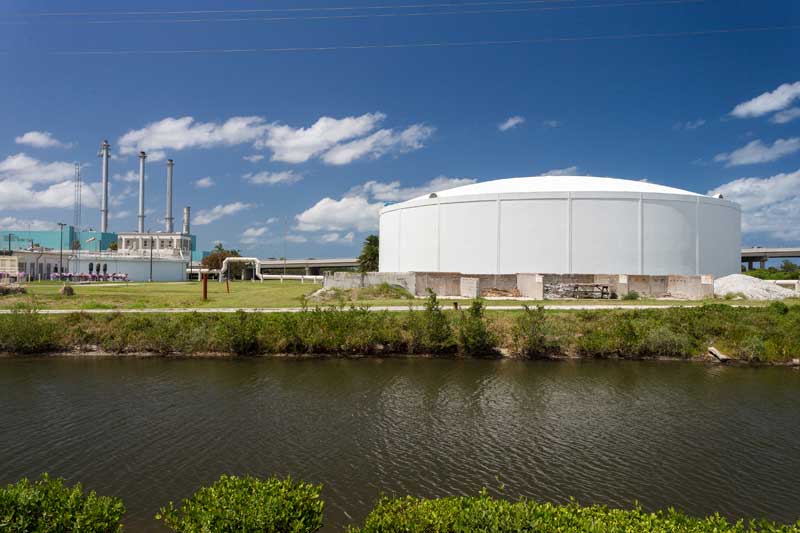Utility activists Dr. Stephen Faherty and Glenn Heran think Vero should not only get out of the electric business, but that the city should sell its water-sewer system to Indian River County and turn solid waste collection over to a private company.
It’s all about economies of scale, Moorings resident Faherty and CPA and South Vero resident Heran say in a PowerPoint presentation prepared for the May 1 City Council meeting.
Councilman Val Zudans sponsored putting the matter on the agenda. It’s his general position that the city should take a hard look at all of its enterprises and activities to seek greater efficiencies, possible partnerships or even privatization of services if that makes sense for taxpayers.
Selling the water-sewer utility is an old idea that cropped up around 2009-2010 but was rejected, in part because then-Mayor Jay Kramer led the charge against the sale, saying that the $48 million price the county was offering was akin to highway robbery of the city’s assets.
The deal also failed to gain traction because – much as Central Beach residents want the sewer plant off the riverfront – a pricey “optimization study” performed by GAI Consultants showed that Vero’s wastewater treatment plant on the river had another dozen good years to function before it was past its useful lifespan.
More than half of that dozen years – which seemed an eternity in 2011 when the study was performed – has now passed, and in just five years, Big Blue and the electric substation will be off the riverfront and the sewer plant will stick out like even more of an eyesore. Some, like Zudans, want the plant moved off the river sooner than later.
On the trash side, Faherty and Heran say Vero should liquidate its manual trash collection trucks, shut down its solid waste building and fleet services and use the savings to pay down the employee pension fund. Since the solid waste department has no debt, Heran and Faherty say it could be a clean break, and Vero could simply piggyback on the deal Indian River County struck two years ago with Waste Management for automated trash collection and recycling services.
At press time, the presentation had not even been made yet but had already drawn major opposition from the Indian River Neighborhood Association, which sent an email blast to its members and to the media about renewed efforts to dispose of the means to provide city services, as well as recent proposals involving the city marina.
“These are all valuable assets which have enhanced the ability of the City to retain a small town charm with excellent services, zoning that protects low heights and densities and a low tax rate. It is a concern that these matters have come forward with almost no public awareness,” said IRNA Board Chair Honey Minuse. Minuse took exception to the presentation not being vetted through or even mentioned at an April meeting of the city’s Finance Commission.

